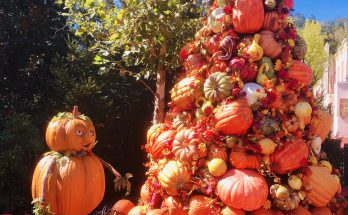Pandemic fatigue is real. As vaccinations are spreading and there is a light at the end of the tunnel, it’s a good time to take a look at what we can help do to prevent this from happening again, and our food choices are worth examining.
The COVID-19 pandemic brought the world’s attention to China’s wildlife markets, where wild animals are sold for food, and are kept, alive and dead, in close proximity with domesticated animals and with humans.
No one knows which animal species transmitted the virus, but it is believed that it originated in bats, which infected another animal present at a market in Wuhan, China.
While we can all breathe a collective sigh of relief now that China has banned the sale of wildlife, this is only one small step in preventing future pandemics. Wildlife markets account for only a fraction of virus-breeding grounds.
The emergence, and re-emergence, of zoonotic viral outbreaks like COVID-19, SARS, MERS, West Nile, Ebola, H1N1, and bird flu is largely due to the urbanization of animals in factory farms.
Factory farming began in the US in the 1960’s, and Americans now get 95% of their meat products from industrialized farms. But in other parts of the world, like China, factory farming only surpassed backyard and mixed-use farms in the last decade.
As the population grows, so does the demand for meat. Today, there are 3 times the number of livestock animals on the planet as humans. The amount of land required to house and grow feed crops for these animals is tipping the scale towards disaster. As countries clear more and more land for feed crops, we push further into forests, the habitats of disease-carrying animals like bats and rodents.
Within the factory farms lurks more trouble. Animals are stressed, living in crowded, unsanitary conditions, and eating unnatural diets, factors that reduce their immunity to infection. The Avian and Swine flu came from infections within the factory system, either from infected livestock or animals that become infected by wild animals while in transit from one facility to another. Furthermore, animals treated with antibiotics to speed their growth may produce diseases that are resistant to treatment in humans.
Our taste for exotic animals or wild game presents another issue. Bush hunting for game meat is another pathway for wild animals to infect our food system.
Liz Specht, PhD, associate director of science and technology at the Good Food Institute recently wrote that “Civilization has outgrown the dated notion of using animals to produce meat.”
Globally, food scientists agree that it is time to make vast changes in meat production to reduce the threat of pandemics and to affect climate change.
The good news: we have options.
The tremendous response to plant-based meats demonstrates that eating meat is a sensory experience, meaning as long as we can enjoy the taste, smell, and appearance of the food, the means of production is not important.
Scientists are also making progress growing meat from animal cells, a process that does not require slaughtering animals.
The increasing awareness of the health benefits of plant-based diets and plant protein sources is helping people reduce the amount of meat in their diets.
To help make a difference consider trying plant-based meats in some of your recipes, implement Meatless Mondays, or make meat a side item instead of the main entrée.
As Dr. Specht writes, “Taking animals out of the food system is easier than you think.”



